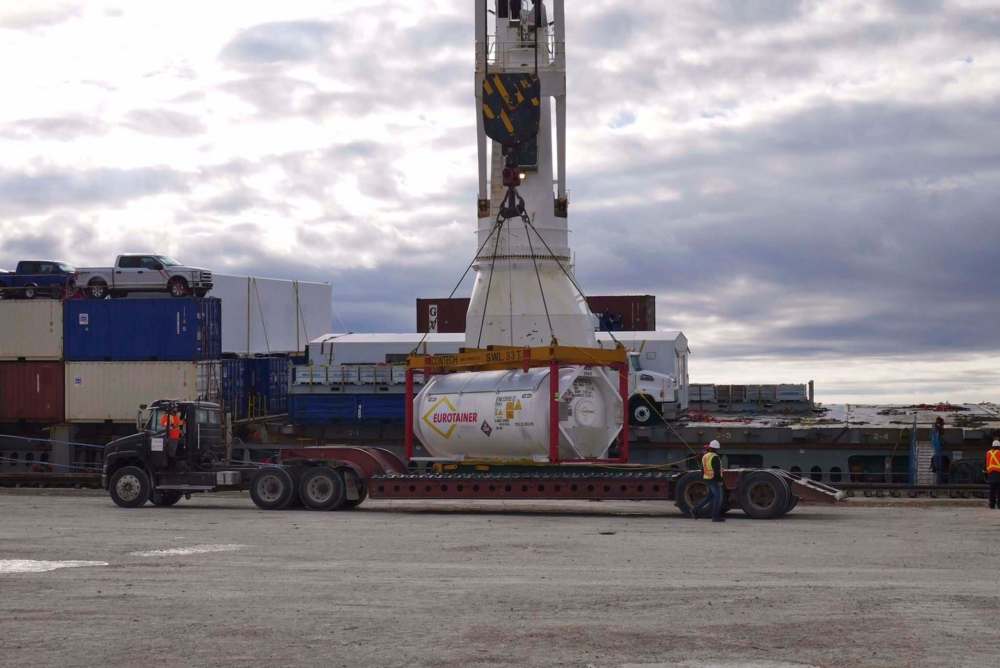Collaboration needed on Churchill file
Advertisement
Read this article for free:
or
Already have an account? Log in here »
To continue reading, please subscribe:
Monthly Digital Subscription
$1 per week for 24 weeks*
- Enjoy unlimited reading on winnipegfreepress.com
- Read the E-Edition, our digital replica newspaper
- Access News Break, our award-winning app
- Play interactive puzzles
*Billed as $4.00 plus GST every four weeks. After 24 weeks, price increases to the regular rate of $19.00 plus GST every four weeks. Offer available to new and qualified returning subscribers only. Cancel any time.
Monthly Digital Subscription
$4.75/week*
- Enjoy unlimited reading on winnipegfreepress.com
- Read the E-Edition, our digital replica newspaper
- Access News Break, our award-winning app
- Play interactive puzzles
*Billed as $19 plus GST every four weeks. Cancel any time.
To continue reading, please subscribe:
Add Free Press access to your Brandon Sun subscription for only an additional
$1 for the first 4 weeks*
*Your next subscription payment will increase by $1.00 and you will be charged $16.99 plus GST for four weeks. After four weeks, your payment will increase to $23.99 plus GST every four weeks.
Read unlimited articles for free today:
or
Already have an account? Log in here »
Hey there, time traveller!
This article was published 17/11/2017 (2895 days ago), so information in it may no longer be current.
Churchill remains in dire straits. So too does the region, which includes communities in Nunavut and those along Hudson’s Bay.
The crisis caused by the 2017 spring washout of the Hudson Bay Railway affects all Churchill’s major industries, including shipping, its ability to supply the North and the work of Churchill Northern Studies Center. The Churchill Marine Observatory, which was to have been built this past summer, was postponed for lack of construction supplies.
Adventure tourism in the region had grown significantly in recent years and continues to do so year-round, offering visitors the opportunity to watch belugas and polar bears, view the aurora borealis, take part in birding expeditions, visit historical sites and more. This season, however, the community is hurting rather than enjoying a prosperous year.

During my July visit to Churchill I heard of many troubling social impacts. Children were arriving at school worried over their parent’s concern for feeding their families. Food costs were high then — $10.99 for four litres of milk (with the subsidy); $21 for a block of cheese; $6.15 for a dozen eggs; $5.25 for a loaf of Wonder bread; $7.15 for a small cauliflower; and a $10.25 for a pound of blueberries. The price of gas rose that day to $2.33, before falling to $1.70. And now these costs are even higher.
Work has been done in the past weeks. The province has delivered propane to the community. The federal government agreed to treat Churchill as a fly-in community and is subsidizing certain foods and supplies. Three private companies have made plans to forge a winter road from Gillam to Churchill to deliver supplies. In the short term, these efforts are much appreciated.
In the meantime, Churchill’s port is operational, poised for northern development and, with ongoing maintenance, will be serviceable for years to come. The Churchill Northern Studies Centre and proposed Churchill Marine Observatory are vital to continuing research in, of, and about the north. The work of Canadian and international researchers, expanding the knowledge and understanding of climate change and other critical matters relating to the north, is important for all Canadians.
The federal government has been negotiating with OmniTRAX, the Denver-based owner of the rail line, but it appears these negotiations have come to an impasse. Repairing the rail line to Churchill is essential for the present and the future of the town, the region, its people and economy. A repaired rail line will address the current emergency as well as the mid- and long-term needs.
As we mark the 150th anniversary of confederation, we must keep in mind that Canada was built through the construction of a railway. We should not allow the isolation of Canadian communities in 2017. This betrays the notion of Canada as an inclusive and just society.
In the long term, the Senate has struck a Special Committee on the Arctic, which will look at the region from many different perspectives, but I believe the health of our northern communities should be at the centre of this study. We need to find sustainable solutions to the challenges facing people living in the north.
Let us enable Churchill to resume its role as gateway to the North. Let us not allow the damaged rail line to become the barrier to assuming that pressing responsibility. Where is our vision for our northern development? One hopes Churchill will not be held hostage with the current legal situations.
As a senator representing Manitoba, I feel it is vital what we all pull together and do everything possible to ensure that action is taken now. Fixing the rail line is essential for the safety, health and prosperity of the citizens of Churchill. Hopefully this will be achieved collaboratively by all levels of government.
Patricia Bovey is a senator from Manitoba who sits on the Senate committees on transport and communications, foreign affairs and international trade, and official languages.



